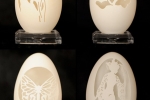
大学印象英文作文500字【一】
Many people simply regard Pride and Prejudice as a love story, but in my opinion, this book is an illustration of the society at that time. She perfectly reflected the relation between money and marriage at her time and gave the people in her works vivid characters. The characters have their own personalities. Mrs. Bennet is a woman who makes great efforts to marry off her daughters. Mr. Bingley is a friendly young man, but his friend, Mr. Darcy, is a very proud man who seems to always feel superior. Even the five daughters in Bennet family are very different. Jane is simple, innocent and never speaks evil of others. Elizabeth is a clever girl who always has her own opinion. Mary likes reading classic books. (Actually she is a pedant. Kitty doesn’t have her own opinion but likes to follow her sister, Lydia. Lydia is a girl who follows exotic things, handsome man, and is somehow a little profligate. When I read the book, I can always find the same personalities in the society now. That is why I think this book is indeed the representative of the society in Britain in the 18th century.
The family of gentleman in the countryside is Jane Austen’s favourite topic. But this little topic can reflect big problems. It concludes the stratum situation and economic relationships in Britain in her century. You can find these from the very beginning of this book.
The first sentence in this book is impressive. It reads: “It is a truth well known to all the world that an unmarried man in poss ession of a large fortune must be in need of a wife”. The undertone is very clear: the foundation of the marriage at that time is not emotion but possession.
People always think that Austen was an expert at telling love stories. In fact, the marriage in her book is not the result of love, but the result of economic needs. After reading this book, I know the truth is that a poor woman must be in need of a husband, a wealthy man.
I couldn’t forget how eager Mrs. Bennet wants to marry off her daughte rs. If you want to know why she is so crazy about these things, I must mention the situation in Britain at that time. Only the eldest son had the privilege of inheriting his father’s possessions. Younger sons and daughters who are used to luxurious lives have no choice but marry a man or woman in possession of a large fortune to continue their comfortable lives. Thus, we can see that getting married is a way to become wealthier, particularly for women without many possessions. Jane Austen told us that money and possession determined everything, including marriage and love in her century.
In “Pride and Prejudice”, the sister of Mr. Bingley strongly opposed his plan of marrying Jane because the Bennets don’t have many possessions and their social positions are much lower than them. From this, we can see there are a lot of obstacles for a not very rich woman to marry a wealthy husband. The society, the relatives would not allow them to get married.
In modern society, although the marriages of economic needs have decreased rapidly, the concept of “money determines everything” is still rooted in some people’s mind. A lot of parents try hard to interfere their children’s marriages. Education background, possessions, jobs remains the main reason that may influence one’s marriage. Marry for money is still a big problem in our
society. We can’t help thinking: can money determine everything?
Austen left this problem for us to think. The genius of Jane Austen lies in this perfect simplicity, the simplicity that reflects big problems. Although Austen was only 21 when she wrote “Pride and Prejudice”, her sharp observation of social lives makes the style of this book surprisingly mature and lively. The plots in her works are always very natural. The development of the plot is as inevitable as a problem in mathematics. I think the depth of Pride and Prejudice is the reason that makes this book prominent and classic. Today, her book still can be the guide telling us the economic relationships both at her time and in modern time.
大学印象英文作文500字【二】
乡村就像捉迷藏的孩子,藏在安静的山谷里。
走在进村的小径上,一团一团地、鹅黄、嫩绿迎面扑来,金灿灿的油菜花刚刚感谢,金花瓣满地,似乎为田野铺上了美丽的地毯。蔬菜花尖结出小巧可爱的结荚,有些颗粒饱满,很快就会发生“蓬”地面一声爆炸,有些还是芽,用手用力挤压,可以挤出几滴淡绿色的汁液。
沿着稍宽的泥路往里走,白墙黑瓦的房子映入眼帘。玄关上的石版上写着几个有力的字—“文昌阁”房间里陈列着村前辈们的书画,书画很有力,很棒。还有一本记载着村庄历史的历史书,陈旧而厚重,却沉淀着数百年的荣辱和沧桑。屋前是两三个小清波荡漾的`浅池,水面上漂浮着圆圆的莲叶,莲叶上圆圆的水珠像珍珠一样透明。一片莲叶之间偶尔会出现一两个小粉红色的花骨。文昌阁右侧有一座土建尖塔,塔身斑驳,诉说了多年的风雨轮回。塔门上链了,我们进不去,可惜了。
阵列酒香把我们带到宅。太好了。堂前是一个大酿酒桶。这时,浓郁的酒香扑鼻而来,几乎熏倒了我。一位村民把湿布轻轻地盖在桶上,然后合上木盖。他告诉我们,一桶酒要酿近两年,才能酿出纯正的味道。
走出酿酒古宅,我们又来到豆腐坊。身体强壮的中年村民用力按石磨,浓厚的乳白色豆浆从出口流入桶中。过了一会儿,一个农民拿着满篮子的大豆倒入石磨,提起满地的豆浆,换上新桶,哼着山歌走了。瞥了一眼那个乳白色的豆浆,真让人垂涎。我认为制作的豆腐一定很嫩很好吃。
接着,我们来到村中央的大池边,几只鸭子悠闲地浮在水面上,吃饱了休息吧。池边,几个老人坐在三三两地,有些用金黄色的稻草织草鞋,有些用细长的竹条织各种形状的篮子。每个动作都很熟练,我还不知道发生了什么。像小船一样的草鞋和形状不同的篮子在他们手里成形了。我不由得在心里暗暗地里喊叫名人在民间,说得很好。
我喜欢这样的乡村生活,虽然没有城市的繁华和喧闹,但安静、平静却不无聊的简单、勤奋、真实。
大学印象英文作文500字【三】
一提到印象最深的人,大家一定会想到:印象最深的,当然是亲人了,“错”,我印象最深的那个人不是我的亲人,而是一位老奶奶,虽然不是亲人,但她对我们楼里的这些孩子十分的好,好象亲奶奶一样。
老奶奶长得十分慈祥,以前是十中的一位很好的教师,现在已经八十多岁了,满头银发,脸早就变得十分瘦了,全是皱纹。她总是对我笑,让我感到她十分亲切。我每次看到她,总是叫一声“奶奶!”,她也老是叫我到她的身边去,后来,我知道,这位老人的耳朵已经不太好用了,于是,我每次看到她,就向她挥一挥手,微微一笑,她看到了,也总是向我微笑着点点头,就这样,这成了我们的见面语。记得有一回,我在院子里玩儿,突然看到了那个奶奶,她挥了挥手,示意叫我过来,我就走了过去,可她却把我拉到了她家,我搞不懂,她为什么这样做?这时,她却拿着一袋子桃子出现在了我面前,硬塞给了我,我推不掉不得不收下了。
还有一回,我刚刚上完课,回家时,我又看到了那个奶奶,这一回,奶奶笑着给了我一把扇子,上面写着“香山”两个字,还画了些红叶,我不明白,这一回,她却开口说话了,虽然声音糊模,可是,我却都听到了,她对我说:“我们以后就见不到了,我就要搬走了,这把扇子就送给你,留个纪念吧。”我听后,心里十分难受,因为那个奶奶对我实在太好了,我含着眼泪走回了家,泪水滴到了那把扇子上……
现在,我看到扇子,吃到桃子,都会想到奶奶。
浙江省三门县实验小学四年级三班 张伟雍
大学印象英文作文500字【四】
大学印象英文作文500字【五】
This is a story about a special and unreserved woman who has been exposed to a hostile environment but continuously and fearlessly struggling for her ideal life. The story can be interpreted as a symbol of the independent spirit.
It seems to me that many readers’ English reading experience starts with Jane Eyer. I am of no exception. As we refer to the movie “Jane Eyer”, it is not surprising to find some differences because of its being filmized and retold in a new way, but the spirit of the novel remains----to be an independent person, both physically and mentally.
Jane Eyer was a born resister, whose parents went off when she was very young, and her aunt,the only relative she had,treated her as badly as a ragtag. Since Jane’s education in Lowwood Orphanage began, she didn’t get what she had been expecting——simply being regarded as a common person, just the same as any other girl around. The suffers from being humiliated and devastated teach Jane to be persevering and prize dignity over anything else.As a reward of revolting the ruthless oppression, Jane got a chance to be a tutor in Thornfield Garden. There she made the acquaintance of lovely Adele and that garden’s owner, Rochester, a man with warm heart despite a cold face outside. Jane expected to change the life from then on, but fate had decided otherwise: After Jane and Rochester fell in love with each other and got down to get marry, she unfortunately came to know in fact Rochester had got a legal wife, who seemed to be the shadow following Rochester and led to his moodiness all the time ----Rochester was also a despairing person in need of salvation. Jane did want to give him a hand, however, she made up her mind to leave, because she didn’t want to betray her own principles, because she was Jane Eyer. The film has finally got a symbolist end: Jane inherited a large number of legacies and finally returned. After finding Rochester ’s misfortune brought by his original mad wife, Jane chose to stay with him forever.
I don’t know what others feel, but frankly speaking, I would rather regard the section that Jane began her teaching job in Thornfield as the film’s end----especially when I heard Jane’s words “Never in my life have I been awaken so happily. ” For one thing, this ideal and brand-new beginning of life was what Jane had been imagining for long as a suffering person; for another, this should be what the audiences with my views hoped her to get. But the professional judgment of producing films reminded me to wait for a totally different result: There must be something wrong coming with the excellence----perhaps not only should another section be added to enrich the story, but also we may see from the next transition of Jane’s life that “Life is like a box of chocolates, you never know what you would get.”
What ’s more, this film didn’t end when Jane left Thornfield. For Jane Eyer herself, there should always be somewhere to realize her great ideal of being independent considering her fortitude, but for Rochester, how he can get salvation? The film gives the answer tentatively: Jane eventually got back to Rochester. In fact, when Jane met Rochester for the first time, she scared his horse and made his heel strained, to a certain extent, which meant Rochester would get retrieval because of Jane. We can consider Rochester’s experiences as that of religion meaning. The fire by his frantic wife was the punishment for the cynicism early in his life. After it, Rochester got the mercy of the God and the love of the woman whom he loved. Here we can say: human nature and divinity get united perfectly in order to let such a story accord with the requirements of both two sides. The value of this film may be due to its efforts to explore a new way for the development of humanism under the faith of religion.











